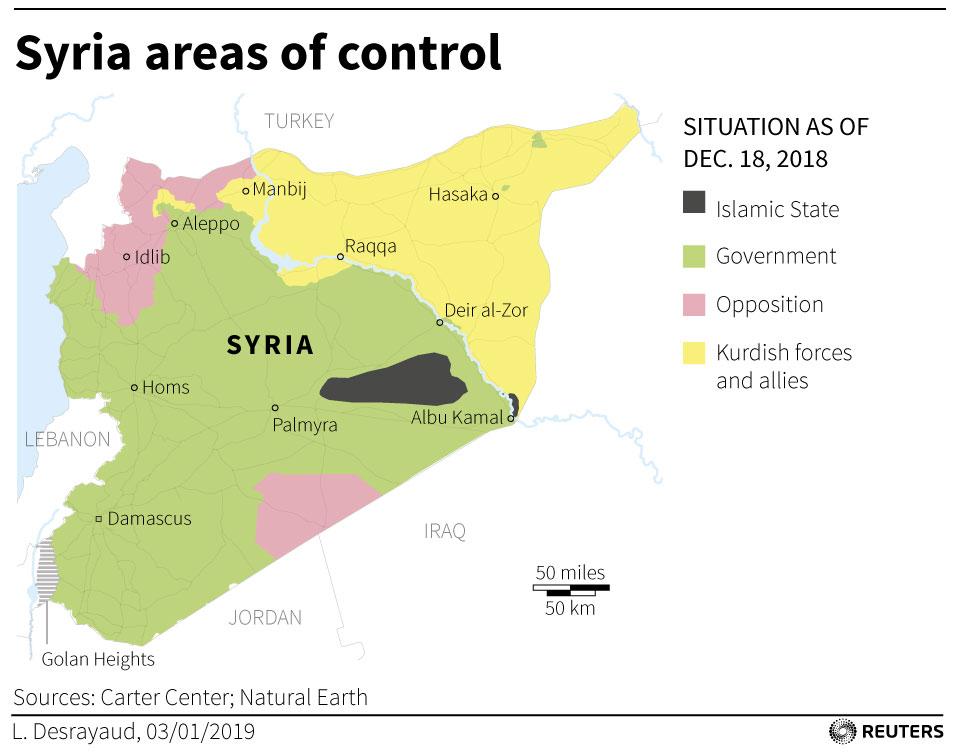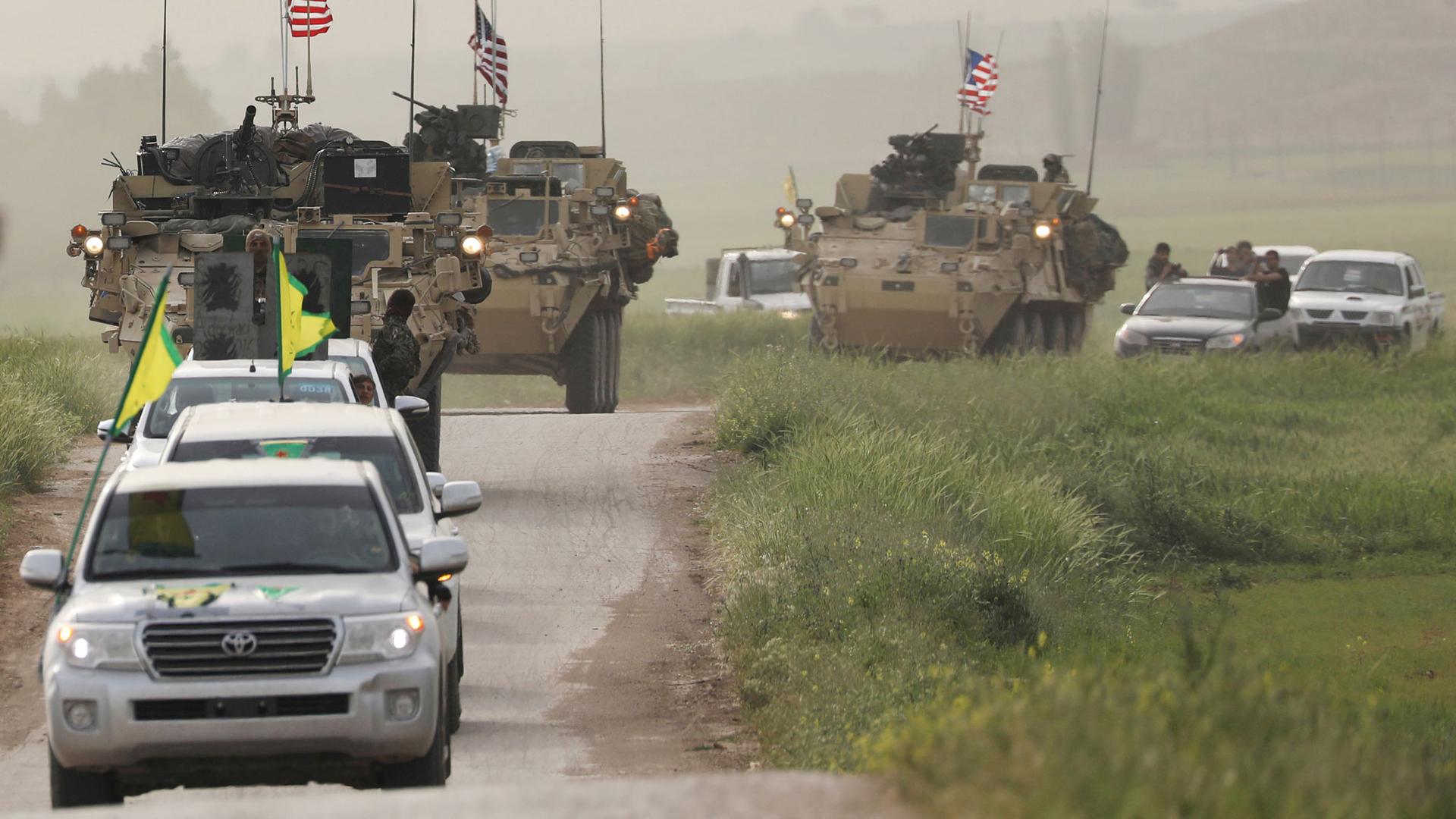US-led coalition says it has started Syria withdrawal
Kurdish fighters from the People’s Protection Units head a convoy of US military vehicles in the town of Darbasiya next to the Turkish border, Syria.
The US-led coalition against ISIS has begun the process of withdrawing from Syria, a spokesman said on Friday, indicating the start of a US pullout that has been clouded by mixed messages from Washington.
US President Donald Trump’s announcement in December that he had decided to withdraw 2,000 US troops stunned allies that have joined Washington in the battle against ISIS in Syria. Senior US officials were shocked too, among them Defense Secretary Jim Mattis, who quit in protest.
The coalition “has begun the process of our deliberate withdrawal from Syria. Out of concern for operational security, we will not discuss specific timelines, locations or troop movements,” Colonel Sean Ryan said.
Russia, which has deployed forces into Syria in support of the Damascus government, said it had the impression that the United States wanted to stay despite the announced withdrawal of US troops, RIA news agency reported.
Residents near border crossings that are typically used by US forces going in and out of Syria from Iraq said they had seen no obvious or large-scale movement of US ground forces on Friday.
The US decision has injected new uncertainties into the eight-year long Syrian war and a flurry of contacts over how a resulting security vacuum will be filled across a swathe of northern and eastern Syria where the US forces are stationed.
On the one hand, Turkey aims to pursue a campaign against Kurdish forces that have allied with the United States, and on the other the Russia and Iran-backed Syrian government sees the chance to recover a huge chunk of territory.

US National Security Adviser John Bolton suggested on Tuesday that protecting Washington’s Kurdish allies would be a pre-condition of the US withdrawal. That drew a rebuke from Turkish President Tayyip Erdoğan who called his comments “a serious mistake.”
US Secretary of State Mike Pompeo, who has been touring the Middle East this week to reassure allies of Washington’s commitment to regional security, said on Thursday the withdrawal would not be scuppered despite the Turkish threats.
The Kurdish groups that control the north have turned to Moscow and Damascus in the hope of striking a political deal that will stave off Turkey and shield their autonomy in the north.
Russia urges Damascus-Kurdish dialogue
Maria Zakharova, a Russian Foreign Ministry spokeswoman, said it was important for Syrian Kurds and the Syrian government to start talking to each other in light of the US withdrawal plans.
She also said the territory previously controlled by the United States should be transferred to the Syrian government.
“In this regard, establishing dialogue between the Kurds and Damascus takes on particular significance. After all, the Kurds are an integral part of Syrian society,” Zakharova said.
Turkey views the US-backed YPG Syrian Kurdish militia as an extension of the Kurdistan Workers’ Party (PKK), which has waged a 34-year insurgency in Turkey for Kurdish political and cultural rights, mostly in southeastern areas near Syria.
A Kurdish politician told Reuters last week the Kurds had presented Moscow with a road-map for a deal with Damascus. Syria’s deputy foreign minister said on Wednesday he was optimistic about renewed dialogue with the Kurds.
Foreign Minister Jean-Yves Le Drian of France, which is part of the US-led coalition, welcomed what he believed was a slower withdrawal by the US after pressure from its allies.
“President Macron spoke to him (Trump) several times and it seems that there has been a change that I think is positive,” he said in a television interview on Thursday.
In a rare acknowledgment that French troops were also in Syria, he said they would leave when there is a political solution in the country.
By Rodi Said/Reuters
Reporting by Tom Perry in Beirut, John Irish in Paris and Andrey Ostroukh in Moscow; Writing by Tom Perry; Editing by Angus MacSwan.
Our coverage reaches millions each week, but only a small fraction of listeners contribute to sustain our program. We still need 224 more people to donate $100 or $10/monthly to unlock our $67,000 match. Will you help us get there today?
